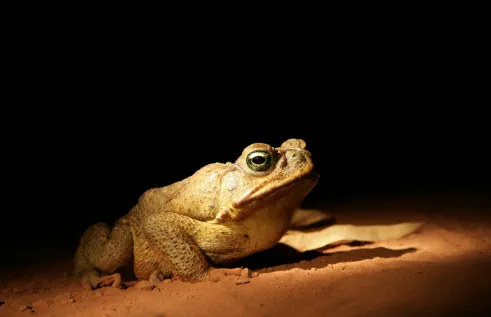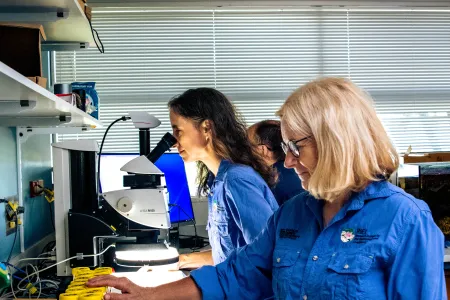News
CDU plans for largest citizen science groundwater study in the world
Resource limitations for research into Northern Australia’s groundwater has meant not a lot is known about systems, but a new Charles Darwin University (CDU) study will take a giant leap in our understanding through citizen science.
The study plans to use a small army of citizen scientists to collect, analyse and record samples of water taken from bores from across Northern Territory, the Pilbara, and the Kimberley.
CDU freshwater ecologist and research leader Professor Jenny Davis said the aim was to recruit several hundred volunteers collecting water from more than 500 groundwater bores.
The citizen scientists will input data collected straight into an app designed and built specifically for the project.
“We will be providing easy-to-use and simple field kits, so citizen scientists can collect samples for testing,” Professor Davis said.
“We will be testing things such as salinity levels, isotopes of oxygen and hydrogen in the water to determine its age, and even test for microplastics.
“There is a limit to what can be done, but it will give us more information than we have now and if there are unusual results then we can do further investigation.”
Professor Davis said groundwater is vital for communities, farmers, and industry across the Northern Territory.
She said despite it being such a vital resource for so many people in the Northern Territory, there is very little known about the water or its interaction with surface water.
“The community’s concern about water overuse and pollution is rising,” she said.
“The remoteness and vastness of the tropical and arid regions of northern Australia mean that community engagement is the only way that information can be collected effectively across such a large spatial scale.”
Professor Davis, from the Research Institute for the Environment and Livelihoods, said she is confident she will get the volunteers as there has been a lot of community interest in the safety of their water supply and care for groundwater.
“I ran a citizen scientist project in central Australia where tourists and rangers collected waterhole water for testing and that was very successful,” she said.
“This is a project that will help to empower people to make decisions about water management and water use in the NT.”
Professor Davis and the team of researchers, including CDU freshwater ecologist Dr Erica Garcia and CDU hydrologist Dr Dylan Irvine will first be conducting a pilot project and developing the app before rolling it out across Northern Territory and northern Western Australia.
The project is a collaboration with an app and website developer, Inspired NT and the Northern WA and Northern Territory Innovation Hub.
The project has received $450,000 over three years from The Ian Potter Foundation for the study.
Related Articles

First “hype cycle” of AI development put tech above humans
Users around the world have rushed to adopt artificial intelligence - especially in safety-critical fields - but a new study has revealed the hype has prioritised technology for technology’s sake instead of human-centred development.
Read more about First “hype cycle” of AI development put tech above humans
Nanoplastics hindering cognitive abilities of fish, international research shows
Nanoplastic exposure can impair the cognitive abilities of fish and could lead to significant impacts on marine species’ ability to survive, according to a new international study.
Read more about Nanoplastics hindering cognitive abilities of fish, international research shows
Eradication would cost billions: NT’s lessons for Pilbara’s cane toad management
Cane toads are predicted to invade Western Australia’s Pilbara region by 2041 if left unchecked, but the Northern Territory’s population of the pests hold key lessons that could save billions in eradication costs.
Read more about Eradication would cost billions: NT’s lessons for Pilbara’s cane toad management
